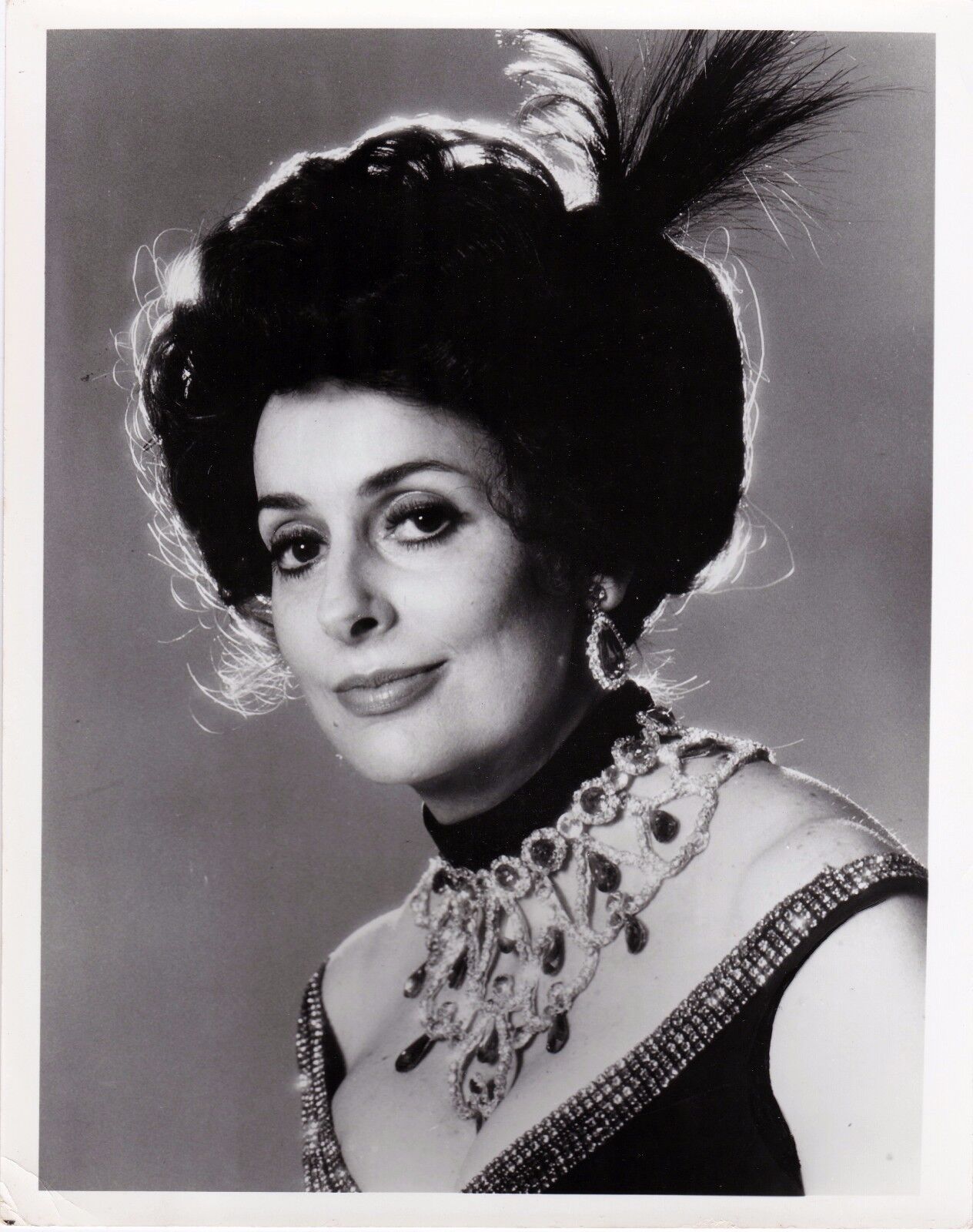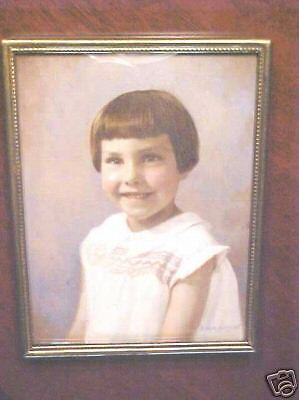-40%
Soprano Opera Singers Lot of 7 Press Photos msc8
$ 1.93
- Description
- Size Guide
Description
For sale is a lot of 7 press photos of opera sopranos:Roberta Palmer
Judith Forst (2 identical)
Cristina Deutekom
Gail Robinson
Pamela Myers
Carole Farley
All are 8x10 inches, black and white, printed on photo paper.
As these are used press photos, they exhibit crop marks, minor creasing, rounding of corners, handwriting on the reverse, small edge tears, etc. Please examine photos carefully. The condition of these photos is generally good with signs of light use and handling.
Shipped with single cardboard padding.
Please contact with any questions.
I will combine shipping.
Shipping is always combined. Shipping quotes for multiple items provided upon request prior to purchase. Original photo of the legendary violinist Fritz Kreisler
International Portrait Gallery
Gale Research Co. -Book Tower - Detroit - 1968
8.5 x 11 inches total including the border
Fine condition. Minor vertical crease down left side. Else excellent.
Priority Mail insured.
I have been a professional violinist for 20 years. I currently teach violin at University of California, Berkeley, and play Concertmaster for the Sacramento Philharmonic and Opera. I've been buying and selling music memorabilia on eBay since it was invented and I've been buying antique art from European and American auction houses for a decade. All pieces for sale are guaranteed authentic and come from my personal collection, which numbers in the thousands.
Friedrich
"
Fritz
"
Kreisler
(February 2, 1875 – January 29, 1962) was an
Austrian
-born American
violinist
and
composer
.
[1]
One of the most noted violin masters of his day, and regarded as one of the greatest violinists of all time, he was known for his sweet
tone
and expressive
phrasing
. Like many great violinists of his generation, he produced a characteristic sound which was immediately recognizable as his own. Although it derived in many respects from the Franco-Belgian school, his style is nonetheless reminiscent of the
gemütlich
(cozy) lifestyle of pre-war
Vienna
.
Kreisler was born in
Vienna
, the son of Anna (née Reches)
[note 1]
and Samuel Kreisler, a doctor.
[2]
[3]
Of Jewish heritage, he was however
baptised
at the age of 12. He studied at the
Vienna Conservatory
between 1882-1885 under
Anton Bruckner
,
Jakob Dont
and
Joseph Hellmesberger Jr.
, and in Paris Conservatory between 1885-1887, where his teachers included
Léo Delibes
,
Lambert Massart
and
Jules Massenet
. He was graduated from Paris Conservatory with a degree of "Premier Prix" gold medal at the age of 12, competing against 40 other players, all of whom were at least 20 years of age.
[4]
He made his United States debut at the
Steinway Hall
in
New York City
on November 10, 1888, and his first tour of the United States in 1888–1889 with
Moriz Rosenthal
. He then returned to Austria and applied for a position in the
Vienna Philharmonic
, but was turned down by the concertmaster
Arnold Rosé
. As a result, he left music to study medicine. He spent a brief time in the
army
before returning to the violin in 1899, when he gave a concert with the
Berlin Philharmonic
conducted by
Arthur Nikisch
. It was this concert and a series of American tours from 1901 to 1903 that brought him real acclaim. Kreisler was also an excellent pianist, and his piano playing is preserved on
Ampico
reproducing
piano rolls
.
In 1910, Kreisler gave the premiere of Sir
Edward Elgar's Violin Concerto
, a work commissioned by and dedicated to him. He served briefly in the Austrian Army in
World War I
before being honourably discharged after he was wounded. He arrived in
New York
on November 24, 1914,
[5]
and spent the remainder of the war in America. He returned to Europe in 1924, living first in Berlin, then moving to France in 1938. Shortly thereafter, at the outbreak of
World War II
, he settled once again in the United States, becoming a
naturalized citizen
in 1943. He lived there for the rest of his life, giving his last public concert in 1947, and broadcasting performances for a few years after that.
On April 26, 1941, he was involved in a serious traffic accident. Struck by a truck while crossing a street in New York, he suffered a fractured skull and was in a coma for over a week.
[6]
In his later years, he suffered from not only some hearing loss but also sight deterioration due to cataracts.
[7]
Kreisler died of a heart condition aggravated by old age in New York City in 1962.
[1]
He was interred in a private mausoleum in
Woodlawn Cemetery
,
the Bronx
, New York City.
Kreisler wrote a number of pieces for the violin, including solos for encores, such as "
Liebesleid
" and "
Liebesfreud
". Some of Kreisler's compositions were
pastiches
ostensibly in the style of other composers. They were originally ascribed to earlier composers, such as
Gaetano Pugnani
,
Giuseppe Tartini
and
Antonio Vivaldi
, and then, in 1935, Kreisler revealed that it was he who wrote the pieces. When critics complained, Kreisler replied that they had already deemed the compositions worthy: "The name changes, the value remains", he said. He also wrote
operettas
, including
Apple Blossoms
in 1919
[8]
and
Sissy
[
de
]
in 1932, a
string quartet
, and
cadenzas
, including ones for
Brahms's
Violin Concerto
,
Paganini
's
D major Violin Concerto
, and
Beethoven
's
Violin Concerto
. His cadenzas for the Beethoven concerto are the ones most often played by violinists today.
He wrote the music for the 1936 movie
The King Steps Out
directed by
Josef von Sternberg
, based on the early years of
Empress Elisabeth of Austria
.
Kreisler performed and recorded his own version of the first movement of Paganini's D major Violin Concerto. The movement is rescored and in some places reharmonised, and the orchestral introduction is completely rewritten in some places. The overall effect is of a late-nineteenth-century work.
Kreisler owned several antique violins made by
luthiers
Antonio Stradivari
,
Pietro Guarneri
,
Giuseppe Guarneri
, and
Carlo Bergonzi
, most of which eventually came to bear his name. He also owned a
Jean-Baptiste Vuillaume
violin of 1860, which he often used as his second violin,
[9]
and which he often loaned to the young prodigy
Josef Hassid
. In 1952 he donated his Giuseppe Guarneri to the Library of Congress in Washington, D.C. where it remains in use for performances given in the library.
[10]
On recordings, Kreisler's style resembles that of his younger contemporary
Mischa Elman
, with a tendency toward expansive
tempi
, a continuous and varied
vibrato
, expressive
phrasing
, and a melodic approach to passage-work. Kreisler makes considerable use of
portamento
and
rubato
[
citation needed
]
. The two violinists' approaches are less similar in big works of the standard repertoire, such as
Felix Mendelssohn
's
Violin Concerto
, than in smaller pieces.
A trip to a Kreisler concert is recounted in
Siegfried Sassoon
's 1928
autobiographical novel
Memoirs of a Fox-Hunting Man
.
The Australian manufacturer of electronics and consumer goods
Kriesler
(later a subsidiary of
Philips
) supposedly took its name after Fritz Kreisler but had intentionally misspelled the name as to avoid possible juristical actions from other parties.
[11]







